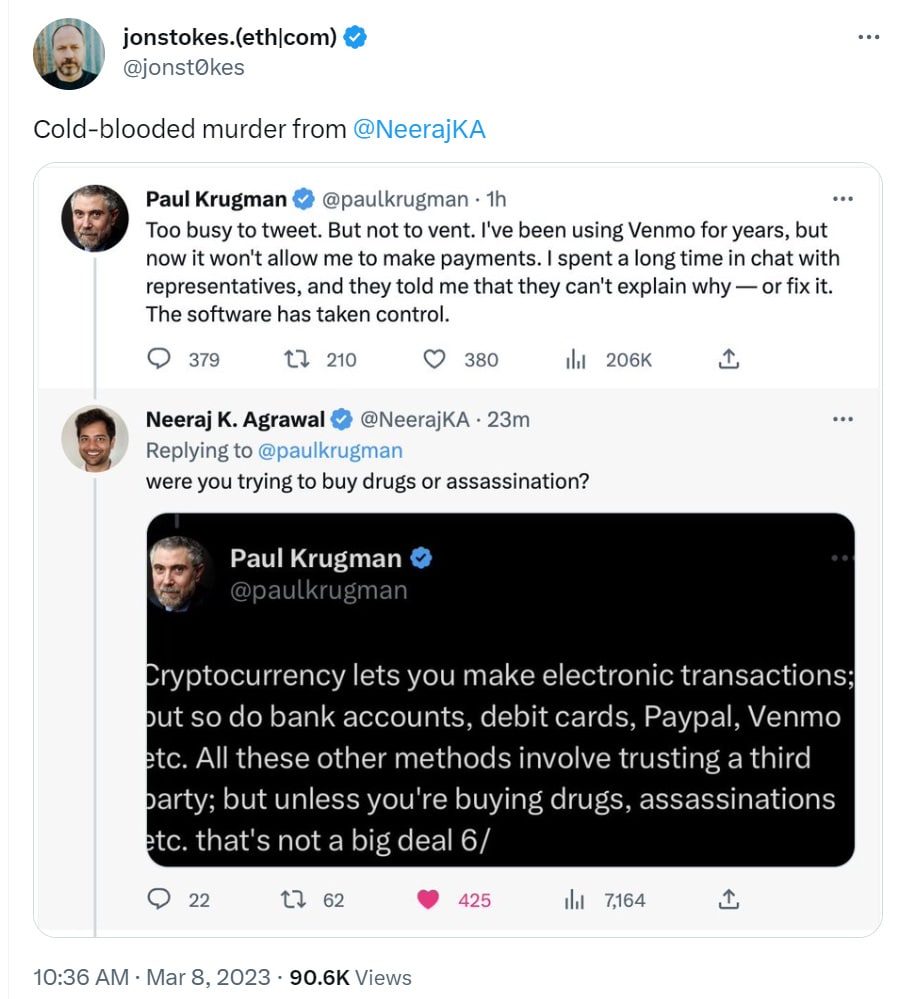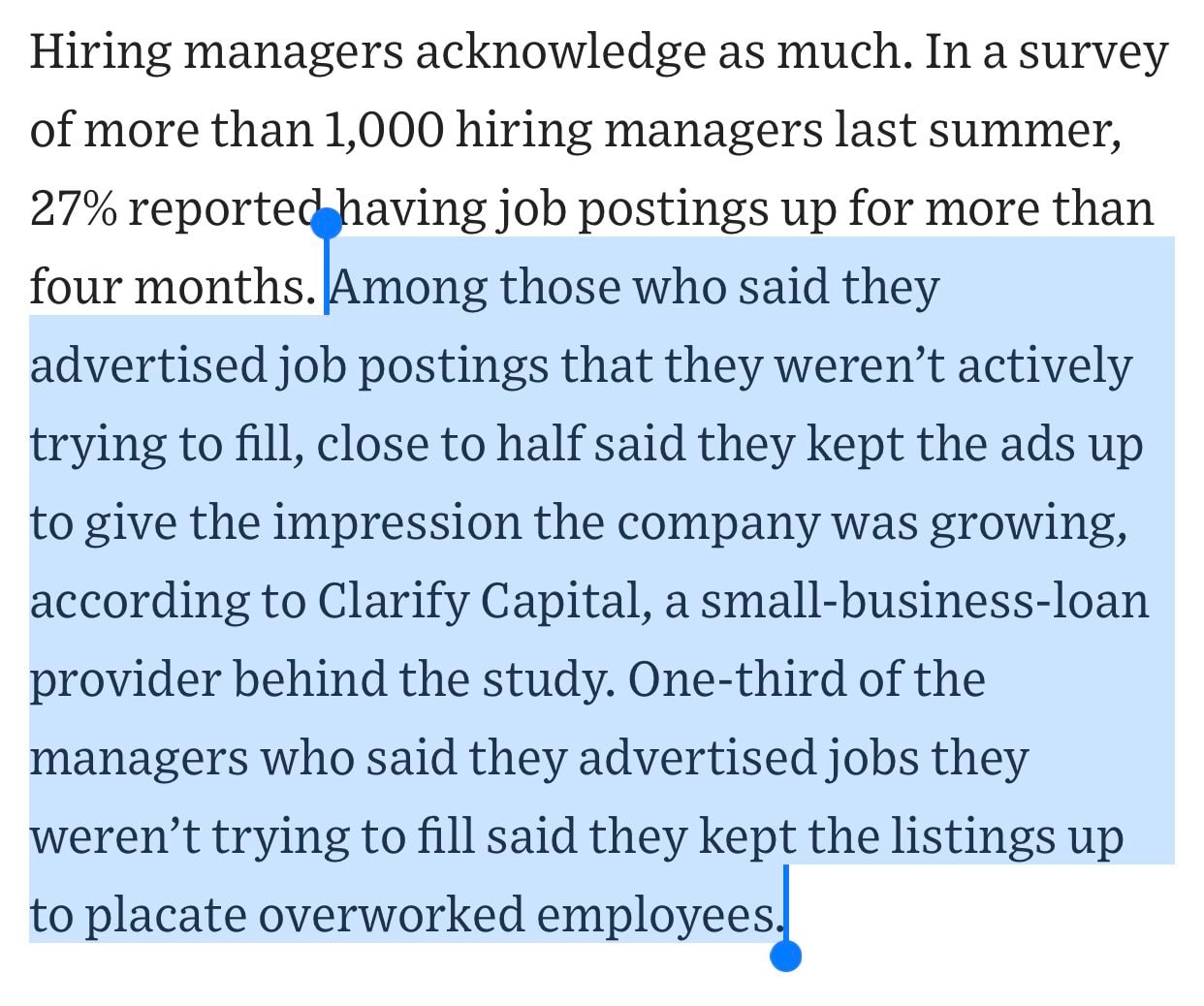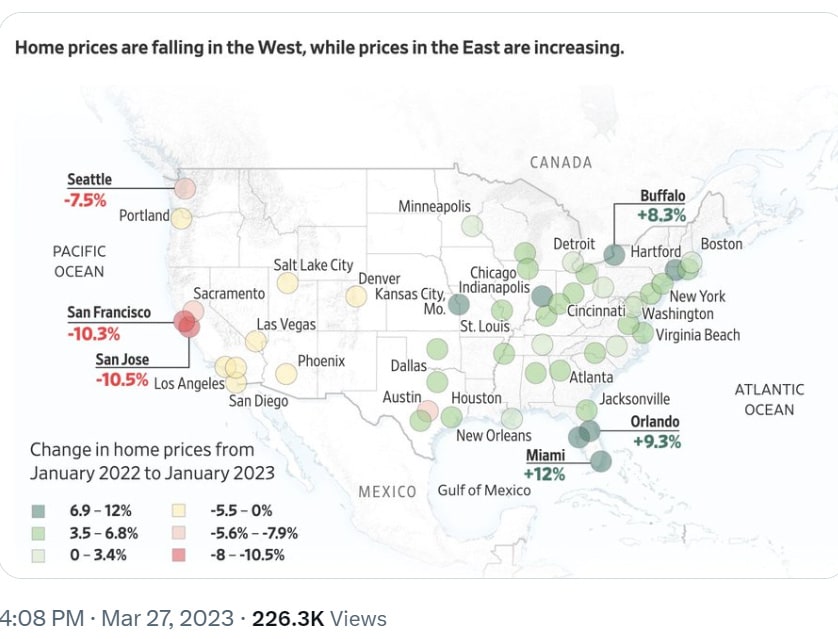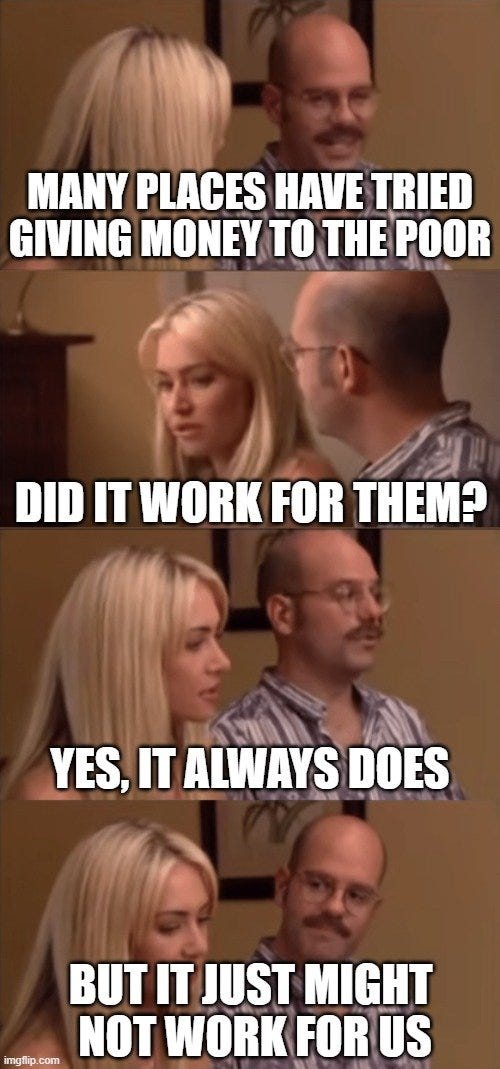As AI eats the world and my time and news feeds, it is always good to know other things also happen. Here are some of them, that did not seem to fit anywhere else and did not seem worth standing on their own even with my new lower thresholds for that.
Bad News
Not only do you only get about five words, you only get about one concept.
Meanwhile, the only message VPs communicated was the need for high velocity. When I asked why there was no communication about the thing considered the highest risk to the business, the answer was if they sent out a mixed message that included reliability, nothing would get done.
The fear was that if they said that they needed to ship fast and improve reliability, reliability would be used as an excuse to not ship quickly and needing to ship quickly would be used as an excuse for poor reliability and they’d achieve none of their goals.
Yep. The default is you get at most one message. A team, a company, gets one priority. If you want your message to stick, to be a building block, it needs to stand on its own.
If I believe that, why the 100+ page compendiums on AI each week without a clear single takeaway message? That’s because I am in the same mode as Dan Luu, accepting that most of what I am attempting to do requires nuance, and if that means that 95% of potential readers don’t get most of what I’m going for, that’s not a fixable problem without sacrificing the message I want to send to the other 5%.
I do want to also present central-concept cases when possible, that can hit a lot more than the 5% – where I have a central theme, and I talk about nuances but all the service of hammering the central theme (or analyzing potential hazards or objections or other concerns).
Also note this comment of Gwern’s, also featured in AI#5, that this is why corporations are deeply stupid at core, even if they can do some intelligent things.
Or at least, bad news for Paul Krugman, too good to pass up.

Germany cracks down on sex workers who post content to Twitter, or anywhere else without age verification.
A good statement of a common problem, related to many of my core model concepts.
Biden administration proposes rules to ruin washing machines along with gas stoves.
You can either call someone an existential threat to Democracy or you can prefer they win their presidential primary. You really do have to choose.
I’ve seen various other claims about the true distribution here. It’s at least a lot closer than one would hope.
All those job postings? WSJ reports they’re often not real.

Biden Administration is preventing the Chips Act from resulting in that many chips, because he’s tying its subsidies to a grab bag of other requirements and priorities like child care, using women-and-minority owned contractors, strengthening unions, enforcing full NEPA reviews and so on. Matthew Yglesias confusingly is surprised by this.
Nature magazine endorsed Joe Biden for President. On March 20, they ran an analysis saying that this endorsement did not change people’s views on the candidates, but did cause some to lose confidence in Nature and in US scientists generally. That’s worse, you do know how that’s worse, right? And yet, they have no regrets, and are doubling down that they did the right thing. I can understand what they were thinking at the time, that they had to speak out and make a difference. But if you’re a scientist, you run an experiment and your hypothesis is definitively falsified, you have to update.
If you don’t, perhaps you are doing something other than science.
Which is exactly what, by their own admission, they are doing. And how dare you suggest that they not do politics:
That’s right, simply giving people ‘scientific information they can use as they see fit’ would give those people ‘the permission to say things,’ we can’t let people ‘pick and choose’ what facts they will use or what they will say.
Seriously, Holden Thorp, what the actual f*** did you just say?
If that is the opinion of one of the top science journals, and a lot of Americans respond by losing a lot of trust in American scientists, well, can you blame them?
Patrick McKenzie shares the tale that many homemakers in Japan have effective monthly credit limits of 200k JPY (~1.5k USD), banks are remarkably hesitant to increase this, it isn’t indexed for inflation, you largely can’t even put in an early payment, and this limit is increasingly binding and frustrating. The origin of this issue is that the system assumes heavily patriarchal household dynamics with respect to spending, and you cannot simply inform the bank otherwise? So weird that this can’t be fixed with a visit to a bank branch. In some ways it’s comforting to know that one’s own systems are screwed up but not as badly as what you see elsewhere.
Avery Hartmans fell victim to a SIM card swipe allowing the attacker to take control over her phone. What I find remarkable is how little of this fraud gets pulled, given our current principle that anyone who has your phone can prove they are you and it is not that hard to convince any mobile phone store employee to do the swap. This seems like one of those fraud ‘overhang’ threats that is somehow not done much, but which we are super vulnerable to, and which is part of ‘things in the AI attack surface that we know would cause no end of trouble.’ Unless there was a truly massive wave of such incidents, it seems likely we would barely respond at all, the same way that the cops and corporations in this story don’t much care.
Alabama will start taxing out-of-state workers of Alabama employers, leading potentially to double state taxation. I expect a lot of elasticity in response.
Good News, Everyone
Scott Sumner has a new book, Alternative Approaches to Monetary Policy. Will plan to read soon, self-recommending.
The new ‘how much of a rationalist are you?’ Aella quiz. I did not get the highest possible score range.
New nuclear power plant hooks up to the grid for first time since 1996.
College students are about to put a (small) robot on the moon (Bloomberg).
MIT is now thee top pick for dream school for students. Great choice. Students then picked Stanford (which hates fun, so bad pick, but with AI there’s an argument) and Harvard (maximum status signaling, the classic). Then NYU, and I get that downtown New York is awesome but the prestige and difficulty factors just aren’t there. Perhaps Felicity is still having an impact.
Top choice of parents was Princeton, which shows how out of touch us parents are, that’s a terrible pick.
“There’s a subconscious consensus that it’s only worth going to college if you can go to a life-changing college,” said Hafeez Lakhani, founder and president of Lakhani Coaching in New York.
I mean, yes. Obviously. If you are going to spend four years of your life and likely take on a bunch of debt, that had better be a life changing experience that you get in return. Otherwise what the hell are you even doing. That doesn’t mean you can’t get a life changing experience at [Your State] University or [Your State] Tech or some local spot (Go [Mascots]!), but if for you that wouldn’t be life changing then it’s not a good match.
Things I can totally condone include a social science study that in stages increasingly substituted nonsense words and then nonsense phrases, and then nothing at all in place of an actual subject for its hypothesis, and noticed that sentiment analysis still produced publishable-level results.


The latest news concerning the Easterlin Paradox (via MR via Ken Lewis) is the claim that about 20% of rich people stay miserable no matter how rich they get and don’t benefit above ~$100k/yr, while everyone else keeps getting happier in logarithmic fashion. This makes intuitive sense to me. There are also claims about how the error happened and the need to improve on standard statistical techniques in social science, which I have not had the chance to evaluate.
The only way to win is not to play.
This situation is indeed quite common and takes many important forms. It is a tough one to solve. My default strategy is to (1) notice the game, (2) notice the game of not being seen noticing the game and (3) decide if I could actually die on this hill and if so whether this is the hill I want to die on today, and if that is a danger, leave what clues I can to let those who pay attention figure it out. One must pick one’s battles.
March 9: John Haidt followed up on the mental health debate I had discussed the previous day in The Kids Are Not Okay. His model for why liberal girls are doing so badly is they are being subjected to reverse CBT (cognitive-behavioral therapy.) CBT is known to help people have better mental health, if they are willing to do the work, by giving people the cognitive tools that do things such as help them have choose their emotional reactions to things, helping them avoid catastrophizing events, helping maintain an internal locus of control, helping them not think of the world as a battle between pure good and pure evil. Whereas, in this model, the new kinds of thinking common in liberal circles that sharply arose around 2012 is the exact opposite of all the best known strategies for good mental health. If true, it can’t be too big a shock that this leads to very poor mental health.
Matt Darling challenges the data on liberal girls and mental health, suggesting that data smoothing could be making us think there was differential impact here when there was only noise. I don’t think he is right, there are a number of other data sources that backed this up. Am still curious what others think.
Room exists for funding of a smartwatch with a cortisol sensor, to make them more useful at monitoring hormones.
Digital nomads can now live in Spain with their families if they earn >$32k? Seems super awesome. I’d rather live in America, but the gap between horrible places and Spain is much much bigger than between Spain and the USA or New York. I could totally be fine in Barcelona.
Go east, young man, while you can.

Claim that we still would have the option, if we were willing to offer EU citizenship, of getting Russian soldiers to defect en masse. You would also pay them, but the citizenship seems like it is doing most of the work here. Note that a payment of $0 is modeled as quite sufficient, provided risk of being caught or killed is low.
You cannot actually give $0, because defectors need a few months of runway in which to establish and orient themselves, rent a place get a job and so on. Still super worth it.
I generally approve of such schemes, this one seems obviously insanely great, but the proposal has clearly been rejected and I don’t see any hope of revival. We would rather spend tons of money and spill tons of blood, and perhaps lose, than accept a bunch of young and able-bodied new immigrants into an aging Europe, or into America which I presume would also work. It is a choice.
Medical and Health News
Covid posts are done, but this subcategory does seem worth keeping distinct.
UK announces unilateral recognition for medicines approved overseas, including by the FDA/USA, the EU/EMA, or Japan. NICE won’t pay without its own assessment, but this is a great leap forward. Someone has to go first in these situations. This opens the door for others to follow.
More great news: FDA gives blessing to a clinical study to a drug to see if it extends lifespan. As in, the FDA has agreed that ‘you get to live more years of healthy life’ is a good reason for a drug to exist and get taken even if there is no other disease or condition being cured. A clear case of someone pulling off the impossible by refusing to acknowledge it was impossible. It can work.
Less great is that the DEA is imposing needless barriers on telemedicine. I don’t quite think this is as pointless as Scott Alexander does, it’s still really stupid.
You can argue about whether it is right to shut any particular class of thing all down, and usually the answer will be no. There are still some cases where the answer is yes.
Seriously, could we not create a lab-generated monkeypox that is 1,000 times more lethal? I would really appreciate if we did not do this.
Zeynep Tufecki reminding us that there was indeed real danger of hospital collapse in the early days of Covid, and your counterfactual strategy has to account for this, asserts confidently that Omicron is not actually less deadly than previous strains.
Health authorities in at least 30 states have been stripped of at least some of their authority by the state legislatures, and will have difficulty issuing future mask mandates, school closures or other countermeasures in a future pandemic. Commentors point out that all this says is that health authorities must seek legislative permission before doing those things. Given the track record of public health, that seems pretty reasonable.
I’d perhaps worry that ‘except in an emergency they won’t be able to move fast enough, and too late is too late,’ except my counter is so what, public health authorities would simply do it anyway. Does anyone think that the things we did in early 2020 were based on the rule of law or proper legislative authority? If there is a huge H5N1 or Ebola outbreak, the Governor will issue orders, public health officials and others will carry them out, and no one will ever look back to much wonder about legal issues.
Thread on Sweden excess death rate during Covid.
Health care spending as a percentage of GDP seems to have mostly stopped going up, once you correct for Covid you find no growth from 2016-2019 and we are now back below that level.
I see two exactly opposite interpretations of this, and one in the middle.
The good version is that we have finally found a way to control the growth of health care spending, despite having an aging population. That which cannot go on forever, won’t, and it didn’t. Now that we have control, we can even hope to bring it down.
The middle version is that we should focus more on that dotted potential GDP line. When 2008 hit, we didn’t reduce (or even change the trajectory of) health care spending because of the insurance model and existing contracts, so spending as a percentage went up. Then it converged back as we caught up to potential, and the dotted line does not look promising until after the pandemic. The post-pandemic decline looks interesting, but times are weird and this could be sticky prices during inflation, so don’t get your hopes up yet.
The bad version is that this means we are no longer getting richer. Health care spending as a percentage of GDP is very highly correlated, worldwide, with GDP. Our health spending could mostly be a proxy for our lack of economic growth.
California Department of Public Health is building a decision intelligence unit.
Gamers Gonna Game Game Game Game Game
Sam Black (who also recently claimed to have played more paper Magic than any other human) talks political tactics and multiplayer Commander win rates, in a very good post for those interested. I agree with him that, if you are fully maximizing your political skills on top of tactical skills to get compounding edges, a 50%+ win rate in four player games is realistic when the decks are lower powered. Then again, there are a lot of players where I would expect Sam Black to have a two-player win rate of more than 84%, or to mainly lose to mana issues that Commander largely dodges. Table selection will always be the key to high win rates, and most Commander tables are highly outmatched by Sam Black.
Magic: The Gathering Arena does not suffer cheaters. Bravo.

I strongly agree with this course of action. Exploiting a bug in a competitive game, that you damn well know is a bug, is completely unacceptable.
I did once abuse what I presumed had to be an exploit in a F2P game. My theory was that if you left a button that says ‘collect free stuff that you can’t trade or sell in this kind of exploitative game economy’ so it worked over and over instead of the once you intended, and I happened to notice this on my own, come on, whose fault is that, really, I’m not ruining anyone else’s experience. I then got suspended for it, got far more than all of the resulting resources confiscated, and as a result quit the game entirely on the spot. Which made my life much better. More winning. Would do again.
On reflection that is my line. If you are playing a single player game, or you are acquiring resources required to play a game, and there is a bug in the system that it would be more fun to exploit than not exploit, that’s your call. If it’s multi-player and you would impact others experience negatively, that’s not your call.
When decklists are closed, it is a huge advantage for the Mana Tithe player, or one who brings other new or rare technology. With open decklists, most players are best served by copying and learning the best known strategies, or at most tinkering with the numbers, and players who are innovators are punished and do not prosper.
There is some compensation for that, in avoiding scouting and in superior coverage, and perhaps that carries the day often, but we must understand the price that is paid. I would be substantially more excited to consider playing again if decklists were closed, although right now I have nothing like the required kind of time no matter how many things got fixed.
Alas I have been too busy to do much gaming so very little to report otherwise. Aside from occasional Marvel Snap, my current game is now Octopath Traveler II. So far, my report is that it is Exactly What It Says on the Tin, and you should play if you finished the first one and want to do it again. Will report more later.
While I Cannot Condone This
Democratic Dads say raising kids is easier today than it was in the 1970s, versus the other three demos (Dem Moms, GOP Dads, GOP Moms) who think it is harder. Certainly many things are better, one still has to ask how they are making this mistake.
It was time to start refilling the Strategic Oil Reserve, by our own plans. Nice profits could have been had. We may now have missed our window, a huge mistake.
Freddie deBoer attempts to define “woke” in deep detail, continues to take position ‘if you want me to call you something else, I’m happy to do that as soon as you tell me what that something else should be.’
“Woke” or “wokeness” refers to a school of social and cultural liberalism that has become the dominant discourse in left-of-center spaces in American intellectual life. It reflects trends and fashions that emerged over time from left activist and academic spaces and became mainstream, indeed hegemonic, among American progressives in the 2010s. “Wokeness” centers “the personal is political” at the heart of all politics and treats political action as inherently a matter of personal moral hygiene – woke isn’t something you do, it’s something you are.
Correspondingly all of politics can be decomposed down to the right thoughts and right utterances of enlightened people. Persuasion and compromise are contrary to this vision of moral hygiene and thus are deprecated. Correct thoughts are enforced through a system of mutual surveillance, one which takes advantage of the affordances of internet technology to surveil and then punish. Since politics is not a matter of arriving at the least-bad alternative through an adversarial process but rather a matter of understanding and inhabiting an elevated moral station, there are no crises of conscience or necessary evils.
His attributes of the woke, condensed: Woke is academic, immaterial, structural in analysis while individual in action, emotionalist, fatalistic, insistent that all political questions are easy and believes in the superior virtue of the oppressed.
The Close Door button on elevators not working: More Than You Wanted to Know. Also the short summary of what you actually want to know, which is that like most dumb things this is government regulation – the ADA requires a minimum time before the door can close, that time is not thought to be at all flexible based on buttons pressed, and elevators typically close after that time by default anyway, so there’s nothing for the close door button to do.

Matt Yglesias here notes that when we do give poor people money, it works for us, and also that those claiming it does not work for us and poverty has not gone down are doing so with measurements that by their very definitions exclude the money and other things we give to the poor (aka transfers) which is very much a I-don’t-know-what-the-f***-you-want-from-us vibe.
More efficient spending, markets in everything edition.

As We Navigate a Banking Crisis
The consumer priceindex still represents inflation as high, 9.6% annual rate for the past three months. The producer price index disagrees, and has it averaging only 1.1% since last June. One big difference is that rent costs in the CPI lag by many months, so it is plausible that the PPI is currently the better measure. That would be excellent news.
Tell me you don’t know how bond yields are determined.
Richest man in the world seems to think Treasury can offer any rate it wants and that becomes the interest rate on our debt? That what matters is the interest paid on the face value? Amazing what things you can accomplish and what you can not know while accomplishing them.
Very little is an accident: Silicon Valley Bank hired BlackRock to study its risk controls, BlackRock pointed out it was taking too much risk, so SVB abandoned the review and changed nothing.
One could almost say that the FDIC did not make a good deal here?
If I sell you my assets at a $20 billion loss and suddenly your value does up by over a third, I know who the sucker was at that table.
Tyler Cowen argues that no regulatory regime could prevent us from having frequent financial crises. Yes, you could make banks safer via things like larger capital requirements and other restrictions, but even if you did that it would offload risk to other places. In this model, people want to do lots of risky things and they are going to create systemic risk somewhere no matter what, so all you can do is buy a little time, as regulations can only be backward looking.
I mostly disagree. I think that regulations often greatly increase moral hazard and systemic risk, so at minimum you can avoid doing that. You can also push the risk off of systemic institutions into non-systemic ones, while also decreasing price and thus quantity, that totally does work. Among other things, SVB failed because our regulatory regime discouraged many uses of funds by banks, such as buying derivatives, which hurt SVB, and then also we encouraged buying ‘safe’ assets that SVB did buy, which created a ton of interest rate risk. You can say ‘regulations merely ignored interest rate risk’ but if you monitor some risks and not others you are encouraging the ones you do not monitor.
The Lighter Side

Topline complaints from linked post: “I hated that my classmates traveled every weekend,” how dare they, it’s so horrible that for $20 everyone was going all across Europe, and “I also thought the locals I meet were rude and hostile towards me, and I missed my life in New York.” Who’s rude now? Also a real headline: “For starters, living with 7 people was not easy.”
Whether or not it’s real, don’t care, too good to check.
The search for the worst volume control interface. Worth the click.
How I think about people loudly proclaiming they won’t pay for Twitter.
Nonfungible… cookies? Oh, me funge. Om nom nom!
… Why? Maybe I’d prefer Cthulhu win a primary election over Nyarlathotep, considering both likely to deal existentially threatening damage to the institution of Democracy, but the first’s damage to be more regional, limited and without as threatening or charismatic an agenda to everything other than Democracy in the universe.
My city is at this moment 5% Ukrainian. I wonder what would happen if it also became 5% Russian. Street fights every night?
How many of those Ukrainians are draft-evaders? I mean, so far it looks like this money-for-not-fighting program is already implemented, but for the opposite side...
Mostly moms with kids, or teenagers. (Potential selection bias, because I typically meet them at supermarkets or playgrounds.)
I bet I know your survey answer on one of Aella’s questions.
Along with the “pay Russians to defect” idea, I submit we should provide advance commitments to Taiwanese people to immigrate permanently to America in the case of a conflict breaking out with China. If China knows an invasion will mean a massive brain drain to the US, maybe this puts a damper on their desire to invade in the first place.
Pretty sure that doesn’t begin to address the reasons why a paranoid dictator might invade Taiwan, and indeed would undo a lot of hard work spent signaling that the US would defend Taiwan without committing us to nuclear war.
There is a program like that for Ukrainian citizenship and bonus money for defectors. As for EU citizenship—maybe grant these to Ukrainians first? People actually defending their country? Instead of offering them to their killers. It’s incredibly corrupt incentive. “Next time, if you want a EU citizenship, just invade your neighbor, kill a bunch of people and defect before dying”
I don’t think anyone is proposing to offer this deal to Putin; it’s not like the rank and file soldiers are able to make the “invade your neighbor” decision in a bid to get EU citizenship.
That’s not really the point?
Incentives for “doing the right thing from the start” should be better than for just “stopping doing the wrong thing”. I can probably see citizenship as an ok option for those Russians who join the fight from Ukrainian side (e.g. “Freedom of Russia Legion”), because they did both. But simply for stopping being murderer? No.
Just as pointless as buying someone flowers. Or saying hello.
The “they are playing a game” thing—some examples, please?